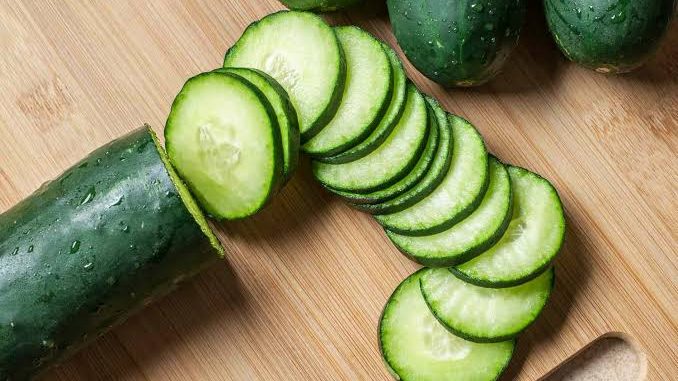
1. Help you stay hydrated
Cucumbers are 95.2 percent water, which means that a 5-ounce serving contains 4.8 ounces or 150 ml water. That’s already about 26 percent of your daily water intake through food.
2. Support heart health
Cucumbers contain potassium (152mg per cup), which can help lower blood pressure. A review of the best studies conducted on potassium intake showed that a higher intake “is associated with lower rates of stroke and might also reduce the risk of total cardiovascular disease.”
As less than 2 percent of U.S. adults consume the recommended 4,700 mg potassium per day, eating cucumbers is an easy way to start increasing your potassium consumption.
3. Protect your brain from neurological diseases
An anti-inflammatory substance called fisetin is present in cucumbers, as well as strawberries and grapes.
It has recently been suggested that fisetin plays an important role in brain health: It would have “the ability to reduce the impact of age-related neurological diseases on brain function,” and it would also help maintain cognitive function in people with Alzheimer’s disease.
4. Protect your skin against the effects of aging
There is a reason why cucumbers are used in skin care: They have been shown to be effective as a potential anti-wrinkle agent in cosmetic products, protecting our skin form the effects of aging.
5. Fight inflammation in the body and reduce the risk of cancer
Cucumbers can help lower the inflammatory response in the body. They contain polyphenols called lignans, which can potentially reduce the risk of certain cancers and cardiovascular diseases.
They also contain plant nutrients called cucurbitacins, which have anti-cancer properties: “Scientists have already determined that several different signaling pathways required for cancer cell development and survival can be blocked by activity of cucurbitacins.”
6. Protect your bones
Cucumber are a good source of vitamin K: One cup contains 22 percent of the recommended daily intake of vitamin K. This vitamin is essential for bone health, as low vitamin K intakes have been associated with a higher risk for bone fracture. Vitamin K is also important for improving calcium absorption in the bones……Discover More
Meet Victoria, The Robot Who Was Created To Give Birth Like A Real Woman ( Photos)

Leave a Reply